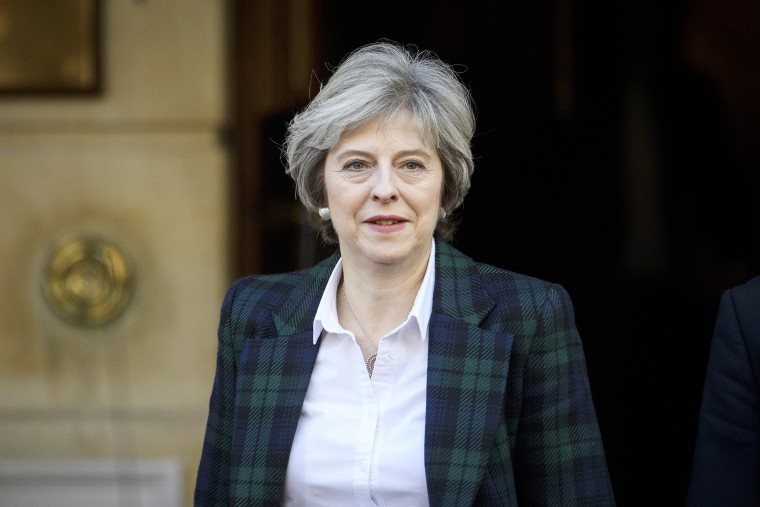LONDON — Officials say British Prime Minister Theresa May was told about a June 2016 test of Britain's nuclear deterrent system when she took office last year — yet the prime minister's office would neither confirm nor deny a newspaper report that one of the unarmed missiles fired during the test of the submarine-based Trident system had malfunctioned.
Opposition leaders have raised concerns about a possible cover-up because Parliament was not told about the test before it debated whether to renew the aging Trident missile system.
May's spokeswoman told reporters Monday that she had been briefed about the test but said the government does not discuss operational details of tests.
The Sunday Times of London said the missile fired off the coast of Florida went off course and may have veered toward the United States.
The update from May's spokeswoman comes after the prime minister refused to say Sunday whether she knew about the incident.
Theresa May told BBC she has total confidence in Britain's Trident nuclear launching system, but didn't confirm or deny the newspaper report about the alleged failure of a ballistic missile designed to carry nuclear warheads.
The Sunday Times said top government officials decided to keep the failure of a Trident II D5 ballistic missile out of the public eye because of an upcoming debate the next month in Parliament over whether to spend 40 billion pounds ($49 billion) to refurbish the aging Trident, the cornerstone of Britain's nuclear deterrent system.
"I have absolute faith in our Trident missiles," May said Sunday when asked if she had known about a possible missile failure when she spoke to Parliament in July. "When I made that speech in the House of Commons, what we were talking about was whether or not we should renew our Trident, whether or not we should have Trident missiles."
Related: British PM Announces 'Hard Brexit' — Will Completely Quit EU
The government triumphed in that debate, winning overwhelming support for the Trident overhaul in July, but some opposition figures in the British government now seek an inquiry into the reported missile failure and a possible cover-up.
Scottish National Party leader Nicola Sturgeon, who opposes having the Trident submarine fleet based in Scotland, said reports of a failure and cover-up are a "hugely serious issue."
Labour Party leader Jeremy Corbyn, also a Trident opponent, called it "a pretty catastrophic error."
A government statement posted on a Defense Ministry blog indicated there was a "routine unarmed Trident missile test launch from HMS Vengeance" in June.
The Royal Navy launch was "part of an operation which is designed to certify the submarine and its crew," the statement said. The Vengeance submarine and its crew were "successfully tested and certified," it said.
The statement says the government does not provide further details on submarine operations for "obvious" national security reasons.
The British government's website says Trident has provided Britain's security every day for the last 46 years. The system consists of Vanguard-class submarines which can carry up to 16 Trident ballistic missiles armed with nuclear warheads.
Defense policy calls for one of the submarines to be on patrol at all times.
